AI is replacing human jobs, Microsoft invests billions in AI technology, and experts warn of potential job loss from job automation. Is your job at risk?
As Artificial Intelligence continues to advance, it’s clear that the technology will have a significant impact on the workforce. One of the most promising AI tools that could significantly impact jobs, is the natural language generation AI model ChatGPT.
From customer service reps to journalists, many jobs could be at risk of being replaced by ChatGPT’s ability to understand natural language, generate human-like responses, and perform repetitive tasks.
How is ChatGPT already affecting different industries? Is your job at risk? Here are the jobs most at risk from being eliminated by AI job automation tools like ChatGPT.
How is #ChatGPT already transforming the workforce? Is your job at risk of being eliminated by job automation? #jobautomation #chatbot #AIjobs #jobloss #futureofwork #jobdisruption Share on XWhat Is ChatGPT
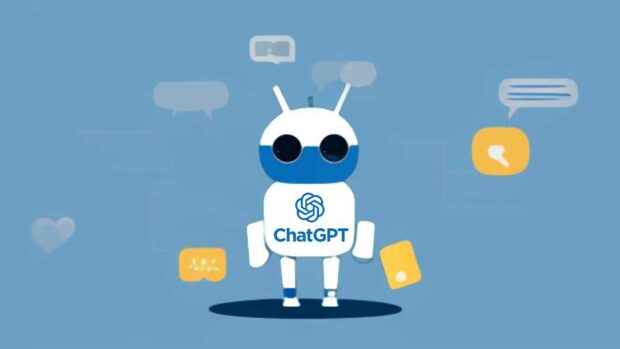
First released in November 2022, ChatGPT is a remarkable chatbot that has taken the world by storm. The natural language processing (NLP) platform, allows users to “chat” with an advanced artificial intelligence capable of responding with astonishingly complex answers.
AI is replacing jobs, Microsoft invests billions in the technology, and experts warn of potential job loss from automating jobs. Is your job at risk? #jobautomation #chatbot #chatGPT #AIjobs #jobloss #futureofwork #jobdisruption Share on XThese Are The Jobs Most At Risk By AI Job Automation
Will job automation using ChatGPT make certain jobs obsolete? Yes. Artificial Intelligence is already taking over jobs. These are the jobs most at risk. Keep reading to see if yours is on the list.
Which jobs are most at risk for being eliminated by job automation? #jobautomation #chatbot #chatGPT #AIjobs #jobloss #futureofwork #jobdisruption Share on XCustomer Service Representatives

- AI-powered chatbots, like ChatGPT, are able to provide customers with instant, personalized responses at scale.
Chatbot are capable of completing tasks quickly and accurately, making them a more efficient and cost-effective choice over human customer service representatives. As AI technology continues to improve, the need for human customer service representatives will decrease, making this job more and more obsolete.
That means the next time you miss your flight, you won’t have to wait to speak or chat with a human customer support staff member. An AI chatbot might be smart enough to rebook you instantly.
As businesses begin exploring AI-based #jobautomation opportunities, customer service representatives are one of the jobs that could become obsolete. #chatbot #chatGPT #AIjobs #jobloss #futureofwork #jobdisruption Share on XData Entry Clerks
- Data Entry Clerks should be very worried about AI taking over jobs, especially theirs.
Data entry jobs are typically administrative in nature and involve entering data into a computer system for storage and analysis. With the advances of AI chatbot technology, many of the duties that Data Entry Clerks are responsible for are being eliminated by artificial intelligence. There’s little doubt that data entry roles will probably one of the first categories to be eliminated by AI job automation.
Companies are are already starting to utilize technologies such as ChatGPT to automate mundane, repetitive tasks and free up human labor resources to focus on more creative and valuable work. And as data entry tasks become increasingly automated, businesses are now looking to AI to replace even higher-level functions, such as data analysis and interpretation. This will further reduce the need for humans in the data and analytics departments.
Teachers & Educators
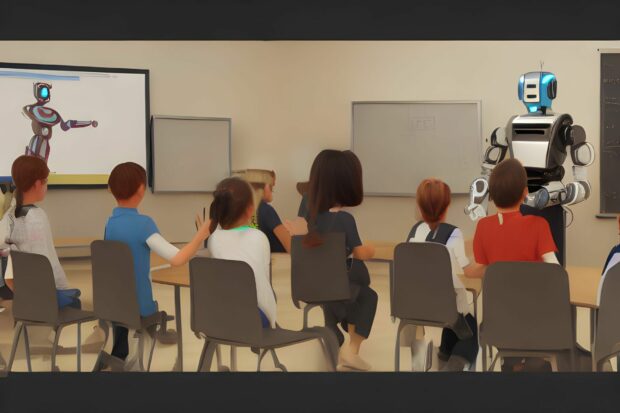
- Some experts predict that AI will replace a significant portion of human teachers in the near future.
With the help of AI-powered tools like ChatGPT, educators reduce the amount of time it takes to complete tasks, such as grading assignments and providing feedback. This not only saves time for teachers, but it also allows them to focus on more high-level tasks such as planning lessons and providing one-on-one instruction.
Additionally, AI-powered educational tools like chatbots and virtual tutors are able to personalize the learning experience for students, providing them with tailored instruction based on their individual needs and abilities.
However, it is important to note that AI can’t replace the human touch, the emotional support, and the ability to adapt to different students’ needs. AI can be used as a tool to enhance the teaching-learning experience but can’t replace the human teacher completely.
Administrative Assistants
- AI and job automation may make Administrative Assistant jobs obsolete in the near future.
Administrative Assistants are the backbone of many businesses and organizations, helping to organize and streamline daily operations. However, with advances in artificial intelligence and job automation, these jobs may become obsolete in the near future.
AI is becoming increasingly capable of performing the same tasks as an administrative assistant, such as scheduling meetings, answering emails and responding to customer inquiries. Additionally, AI can now be used to handle complex tasks such as payroll and invoicing, which would otherwise be handled by administrative assistants.
Bank Tellers

- Banks are starting to leverage Artificial Intelligence to process transactions and deliver customer service without the necessity for human bank tellers.
As banks adopt AI tools, the job of a bank teller will also become obsolete. With the introduction of AI technologies, banks are now able to process transactions and provide customer service without the need for a human bank teller.
AI is just the latest threat to bank teller jobs. Between the introduction of automated teller machines (ATM) and online banking services, the demand for bank teller jobs is dramatically lower than it was a few decades ago. AI job automation will now likely eliminate this role completely. It’s impossible for a bank teller to compete against an AI’s accuracy, speed, and cost efficiency.
Insurance Underwriters
- As AI and machine learning become more powerful, most common insurance underwriter tasks could be processed more quickly and accurately by AI.
Insurance underwriters are responsible for assessing and managing the risk posed by different insurance policies. In the past, this has required high levels of specialized knowledge, experience, and expertise. However, advances in AI and machine learning are making it increasingly possible for computers to assess and manage risk for insurance policies, meaning that underwriters may soon become a redundant job.
If you’re currently an insurance underwriter, then you should probably begin to consider how to diversify your skillset and prepare for the potential automatization of you job in the near future.
Medical Transcriptionists
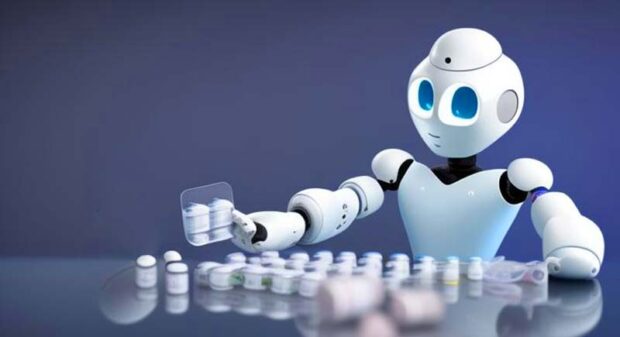
- Medical Transcriptionists should be prepared for the possibility of their jobs becoming automated by AI.
Medical Transcriptionists are an important part of the healthcare system and are responsible for transferring spoken medical notes into written documents.
Although most transcriptionists are already using voice-to-text software, they still need to manually clean up and format the transcriptions. But with the advancement of natural language processing, AI tools like ChatGPT can perform this task faster and more efficiently than a human.
Junior Tax Accountant
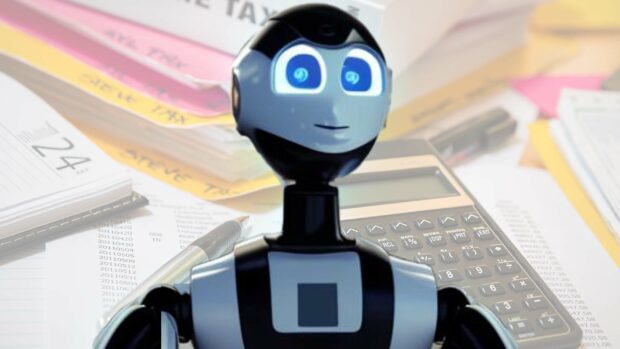
- Tax preparers are one of the many professions that could be vulnerable to automation using ChatGPT.
Companies like TurboTax have already made filing your taxes incredibly easy. Just imagine how powerful tax software will become in the near future once it is integrated with AI.
AI tools can be used to automate tax preparation tasks, such as filing tax returns, compiling data, and providing basic advice. This would allow experienced tax preparers to focus on more complex tasks, like providing tax planning and consulting services.
Uncovering the Job Automation Revolution: How ChatGPT is Transforming Industries And Putting Your Job at Risk #jobautomation #chatbot #chatGPT #AIjobs #jobloss #futureofwork #jobdisruption Share on XLoan Officers
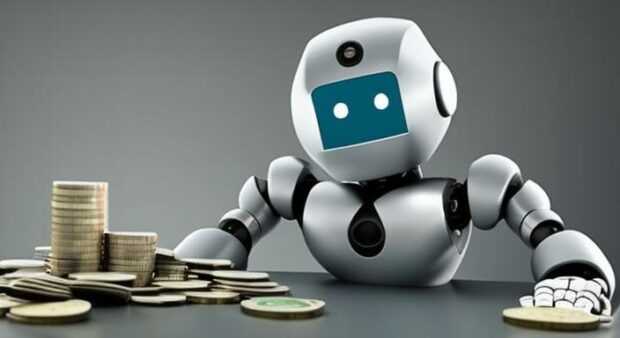
- Loan officers are another job at risk of becoming obsolete due to the rise of artificial intelligence and chatbots.
AI-based chatbots can analyze customer loan requests, process the necessary documents, and even complete a loan application based on the customer’s input. The automatization of these processes can significantly reduce the time and labor costs involved with the loan processing process, making it increasingly difficult for loan officers to keep up with the competition.
As AI-based technologies continue to improve, it is likely that more and more loan processing tasks will be taken over by AI-based systems, ultimately leading to job loss and a decrease in demand for loan officers.
Will artificial intelligence take over jobs? #jobautomation #chatbot #chatGPT #AIjobs #jobloss #futureofwork #jobdisruption Share on XFinance Professionals
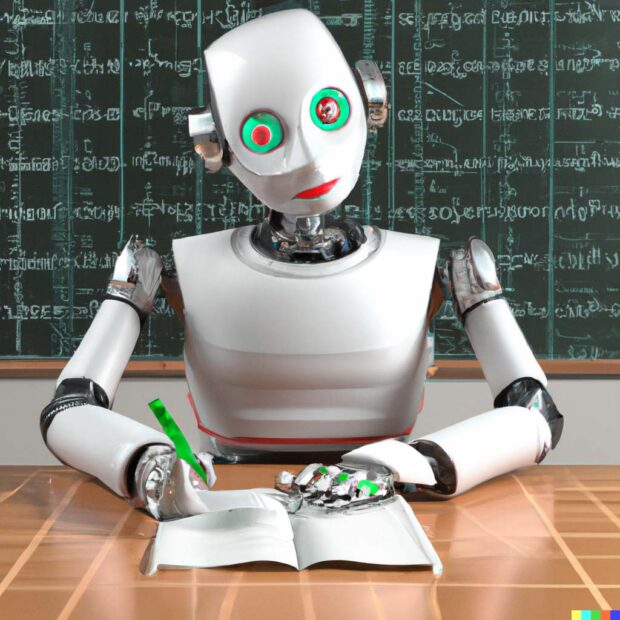
- As the use of AI in finance becomes more common, experts predict that AI will replace a significant portion of finance jobs in the near future.
With the help of AI-powered tools, many of the tasks traditionally performed by finance professionals such as data analysis, risk assessment, and fraud detection can now be done more efficiently and accurately by AI. This saves time for finance professionals and allows them to focus on more high-level tasks such as strategic planning and decision making.
Additionally, AI-powered financial tools like robo-advisors and predictive analytics are able to provide personalized financial advice and investment recommendations to customers, based on their individual needs and goals. This will make financial services more accessible for people of all backgrounds and investment levels.
However, it is important to note that while AI can automate certain tasks and make them more efficient, it cannot replace the human judgement, creativity, and problem-solving skills that are required in many finance jobs. AI can be used as a tool to enhance the decision-making process but can’t replace the human finance professional completely.
Is artificial intelligence replacing jobs? #jobautomation #chatbot #chatGPT #AIjobs #jobloss #futureofwork #jobdisruption Share on XSoftware Engineers
- The use of AI in software engineering is becoming increasingly common, and many tasks traditionally performed by software engineers can now be done more efficiently and accurately by AI.
As AI tools get smarter and better at writing code, its is making software development more efficient and cost-effective. With the help of AI-powered tools, many of the basic tasks traditionally performed by software engineers such as coding, testing, and debugging can now be done more efficiently and accurately by machines. This is not only saving time for senior software engineers, but also allowing them to focus on more high-level tasks such as design and innovation.
That’s great news for senior programmers, but what about entry-level coders?
A recent report from Semafor claims that OpenAI, the creator of ChatGPT, has been making significant efforts to hire a large number of outside contractors to train its AI models to code. Aggressively teaching AI to write code could potentially lead to the elimination of entry-level coding jobs.
According to the report, OpenAI has hired approximately 1,000 contractors in the past six months, mainly from regions such as Latin America and Eastern Europe. 60% of these contractors were hired for data labeling, while the remaining 40% were computer programmers tasked with creating software engineering datasets for OpenAI’s models to learn from.
True, AI can automate certain tasks, but it cannot replace the human creativity, problem-solving skills, and ability to adapt to new situations that are required in many software engineering jobs. Replacing entry-level coders with AI tools could have a dangerous ripple effect into the future. Where will the next generation of senior software engineers come from if the entry level positions are replaced by AI?
AI can be used as a tool to enhance the software development process, but can't replace the human software engineer completely. #jobautomation #chatbot #chatGPT #AIjobs #jobloss #futureofwork #jobdisruption Share on XGraphic Designers
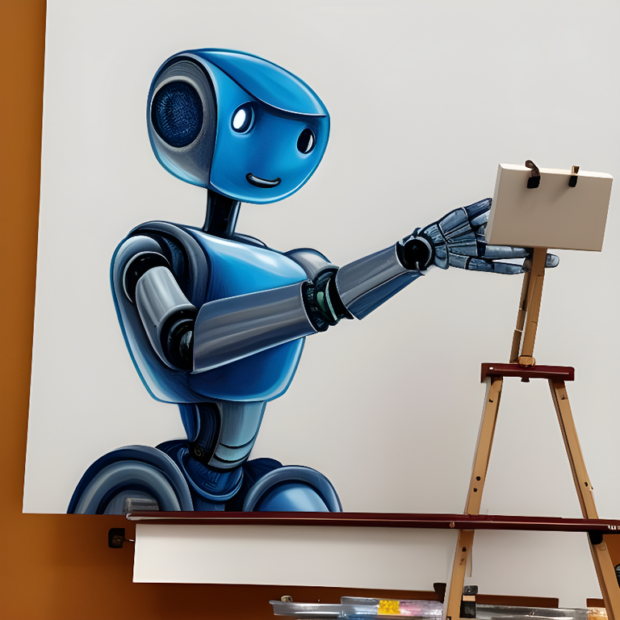
- Many of the tedious tasks traditionally performed by graphic designers can now be done more efficiently and accurately using AI.
One of the main ways that AI is impacting graphic design is through the automation of design tasks. AI-powered tools such as generative design software can analyze a designer’s preferences and constraints, and automatically generate a wide variety of design options. This allows designers to explore more options and iterate more quickly.
Another way that AI is impacting graphic design is through the use of machine learning algorithms for tasks such as image recognition and manipulation. These tools can analyze images and automatically identify and correct issues such as color balance, contrast, and composition, making it easier for designers to achieve the desired look and feel for their designs.
However, it’s important to note that while AI can automate certain tasks, it cannot replace the human creativity, problem-solving skills, and ability to understand and interpret a client’s design brief.
AI can be used as a tool to enhance the design process, but it can’t replace the human designer completely. It is expected that AI will eliminate some jobs in graphic design, such as repetitive tasks, but it will also create new opportunities for graphic designers who are able to adapt to the new technology and develop new skills. Graphic designers who can use AI tools to improve their workflow and create more unique designs will be in high demand in the future.
The field of AI-assisted design also faces some legal hurdles. Getty Images recently announced legal action against Stability AI, the parent company of Stable Diffusion, alleging that the program has illicitly replicated its copyright protected pictures.
How is AI taking over jobs? Is yours next? #jobautomation #chatbot #chatGPT #AIjobs #jobloss #futureofwork #jobdisruption Share on XReligious Leaders

- As companies continue to embrace new AI technologies in the workforce, religious organizations are also turning to AI and chatbot technology to help meet the spiritual needs of their followers.
Is the employment of religious leaders, such as Priests, Clerics, Rabbis, and others, under threat from AI? As companies continue to adopt AI technology in their workplaces, religious organizations are also investigating ways for AI chatbots and robots to meet the spiritual needs of their followers.
At a synagogue in New York, a Rabbi caused a stir when he revealed that his sermon was composed by a ChatGPT chatbot. Despite their initial surprise, the congregation was struck by the chatbot’s capability to write an insightful piece, leading to a lively discussion on the intersection of technology, Robot Religion, and AI.
Rabbi Franklin’s experiment with ChatGPT isn’t unique. Other religious leaders are investigating how AI technology can be integrated it into their religious practices. Today, it’s already possible for AI to write religious sermons. In the future, AI-powered robots or holograms will be able deliver them. The blending of technology and religion is unavoidable and only a matter of time.
Journalists
The automatization of jobs in the journalism industry is an especially sensitive subject. Artificial intelligence will never replace investigative journalism work, but it can use data feeds to automate traffic, weather, stock market changes, and sports scores.
One of the main ways that AI is impacting journalism is through the automation of feed-based article writing. AI-powered tools like natural language generation software are able to analyze data feeds and automatically generate news updates, summaries, and even entire stories. This is making it possible for news organizations to produce more content, and free up employee time in the newsroom for more important tasks.
Another way that AI is impacting journalism is through the use of machine learning algorithms for tasks such as fact-checking and identifying fake news. These tools can quickly analyze large amounts of information and flag potential inaccuracies or falsehoods, making it easier for journalists to verify the accuracy of their stories.
However, it’s important to note that while AI can automate certain tasks, it cannot replace the human creativity, critical thinking, and ability to understand and interpret complex issues that are required in many journalism jobs. AI can be used as a tool to enhance the journalism process but can’t replace the human journalist completely.
While it is true that AI will eliminate some jobs in journalism, such as data entry and other repetitive tasks, it will also create new opportunities for journalists who are able to adapt to the new technology and develop new skills.
Will AI Make Your Job Obsolete?
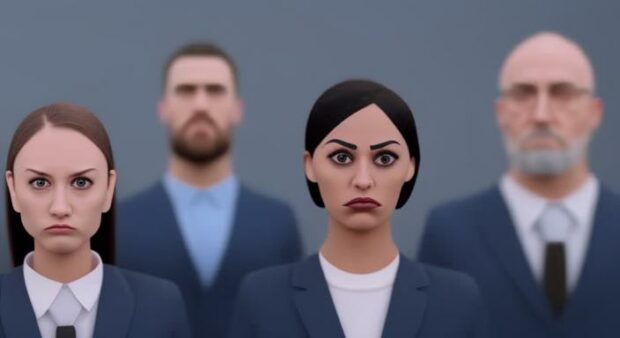
The rise of job automation using AI tools like ChatGPT could mean a dramatic shift in the job market. Is artificial intelligence taking over jobs? Yes. Unfortunately, positions that involve repetitive tasks and require little human interaction will most likely be replaced by automated systems.
As AI continues to advance, its capabilities are transforming the way we work and live. AI technology is quicker and more accurate than humans, streamlines tasks, and can eliminate common mistakes.
Yes, AI will take jobs away. But new jobs will also develop. How you can prepare for the potential changes in your industry? Which jobs could benefit from automating jobs in the future?
Humanity needs to learn to harness new opportunities and learn how to use AI to our advantage. If you don’t, you will probably won’t have a job.
Job Automation Using ChatGPT Could Make These Jobs Obsolete - Is Your Job On This List? #jobautomation #chatbot #chatGPT #AIjobs #jobloss #futureofwork #jobdisruption Share on X
Frank Wilson is a retired teacher with over 30 years of combined experience in the education, small business technology, and real estate business. He now blogs as a hobby and spends most days tinkering with old computers. Wilson is passionate about tech, enjoys fishing, and loves drinking beer.

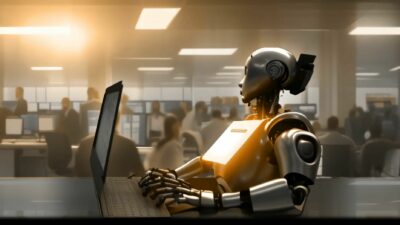

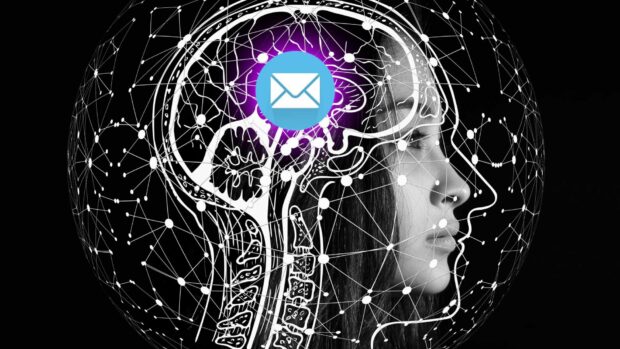

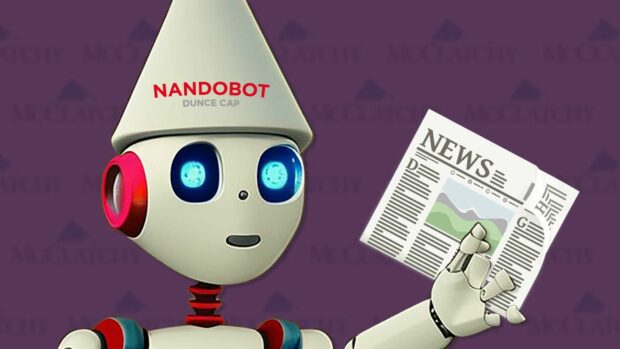


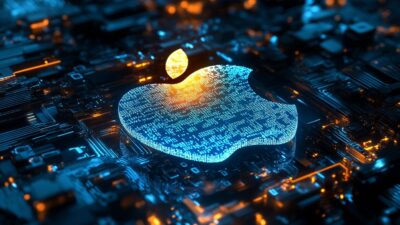









 Unleash the Power Of AI-Generated Music With Riffusion – The Free App That Creates Music From Text Prompts
Unleash the Power Of AI-Generated Music With Riffusion – The Free App That Creates Music From Text Prompts
Leave a Reply
You must be logged in to post a comment.